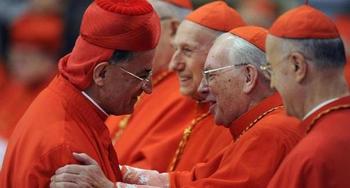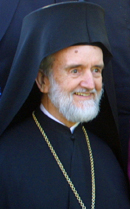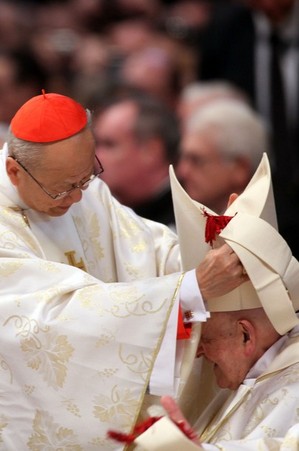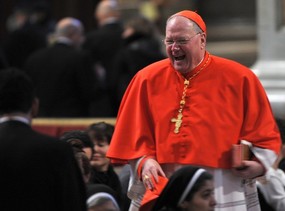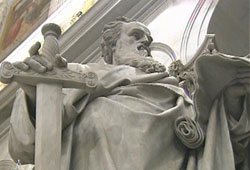This article by Rebecca Hoeffner about the ordination to the episcopacy of Joseph Strickland for service as the bishop of the Diocese of Tyler, Texas, is a terrific testimony to grace at work. The whole article is worth reading for the last sentence. The whole of the ecclesiology is summed up in that one sentence, with that one word… You can follow Bishop Strickland on his blog, FatherRunFather. Blessings on Bishop Joseph Strickland.
Tag: ecclesiology
Pope Benedict’s homily for new cardinals: being Catholic embraces the whole universe, bear witness to Christ
These words, which the new Cardinals are soon to
proclaim in the course of their solemn profession of faith, come from the
Niceno-Constantinopolitan creed, the synthesis of the Church’s faith that each
of us receives at baptism. Only by professing and preserving this rule of truth
intact can we be authentic disciples of the Lord. In this Consistory, I would
like to reflect in particular on the meaning of the word “catholic”,
a word which indicates an essential feature of the Church and her mission. Much
could be said on this subject and various different approaches could be
adopted: today I shall limit myself to one or two thoughts.
Salvatore Cordileone arrested for DUI
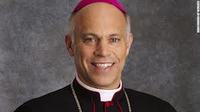 You know Salvatore Cordileone’s name –he’s the new archbishop of San Francsico. A high profile appointment made several weeks ago by Pope Benedict XVI. He was arrested for a DUI charge on August 25. He’s admitted wrong-doing, spent 11 hours in jail, paid the bail and is due in court on October 9, just 5 days following his scheduled installation in SF.
You know Salvatore Cordileone’s name –he’s the new archbishop of San Francsico. A high profile appointment made several weeks ago by Pope Benedict XVI. He was arrested for a DUI charge on August 25. He’s admitted wrong-doing, spent 11 hours in jail, paid the bail and is due in court on October 9, just 5 days following his scheduled installation in SF.
Remembering the Future…John Zizioulas’ new book
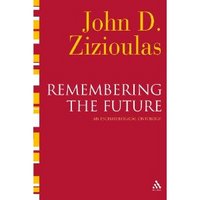 The predominating concept in theological ontology is
The predominating concept in theological ontology is
that of a protological ontology which defines being itself as being defined by
the past. The future of things in this perspective is defined by its origins
and the “given” or the “factum”. In this major new book
John Zizioulas shows that eschatology can have important implications for
ontology, i.e. for being itself. The world was created with a purpose and the
end which would be greater than the beginning. This is the view of the Fathers,
such as Irenaeus and Maximus, who made the end the “cause of all
being”. The implications of such an idea are revolutionary, both
historically and experientially. It represents a reversal of the ancient
philosophical idea of causality as well as of our common sense rationality,
according to which the cause precedes chronologically as well as logically. It
is the opposite of protological ontology, which makes the past decisive for the
future. Eschatological ontology, therefore, is about the liberation of being
from necessity, it is about the formation of being. Man and the world are no
longer imprisoned in their past, in sin, decay and death. The past is
ontologically affirmed only in so far as it contributes to the end, to the
coming of the kingdom. The eschaton will ‘judge’ history with this criterion
alone. The last judgment as part of the eschaton represents an ontological, not
a moral event. Zizioulas shows how this eschatological ontology permeates
Christian doctrine, particularly that of creation and ecclesiology. He also
points out some of its ethical implications.
Metropolitan of Pergamon, was Professor of Systematic Theology at the
University of Glasgow and Visiting Professor at King’s College, London. His
thinking is widely respected across confessional lines. The key points of his
thinking, I believe, are freedom (human and divine), ontology and otherness (personhood),
communion theology, one and the many, and the contours of Christian unity.
Zizioulas is the author at least 8 books and numerous articles. He is the
Orthodox voice in ecumenical discussions especially between Rome and
Constantinople. Since 1986 John Zizioulas has been a bishop.
What is the Church for?
We inundate Him with problems, with demands for information, for clues, for an easier path, forgetting that in his Word he has given us the solution to every problem and all the details we are capable of grasping in this life.
Hans Urs von Balthasar
Getting a title: Pope assigns parish churches to new cardinals
In a public Consistory the Pope created 22 new Cardinals today, though 4 are over 80 years of age and therefore cannot vote in a papal conclave.
At the ceremony in which the Pope creates a cardinal, each one is assigned a church in Rome, a titular or diaconal church. He becomes, in way, the pastor of a Roman parish and thus diocesan priests of Rome and therefore capable of electing the Bishop of Rome. This is “ecclesiology 101a.”
The College of Cardinal is divided into three groups, cardinal bishops, priests and deacons. There is a dean and a vice dean of the College. Only by exception are cardinals not bishops or consecrated before being created cardinal per the Code of Canon Law (Cardinal Karl Becker was not consecrated a bishop prior to today’s bishop and very often Jesuits created a cardinal who are 80 and above are typically dispensed from being consecrated; Avery Dulles was). Cardinal priests who are diocesan bishops of dioceses, while curial officials are made Cardinal Deacons.
The tradition of the Church is that after a number of years as a cardinal deacon one can be “promoted” to the order of cardinal priests. Some cardinals in key positions, such as the Dean of the College or prefect of an important Vatican congregation, e.g., CDF, are elevated to an open slot among the six Cardinal Bishops. There are seven cardinalatial titular dioceses, but by tradition the Dean always has two, Ostia and one other. There are also a four Cardinal Patriarchs of Eastern Churches, who rank in the College just after the Cardinal Bishops.
If you watched the ceremony each of the cardinals walked away from the Pope with a scroll. The scrolls documents man’s name as a cardinal and gives the name of his Roman church.
New cardinal deacons and their titles:
Cardinal Fernando Filoni, diaconate of Nostra Signora di Coromoto in San Giovanni di Dio.
Cardinal Manuel Monteiro de Castro, diaconate of San Domenico di Guzman.
Cardinal Santos Abril y Castello, diaconate of San Ponziano.
Cardinal Antonio Maria Veglio, diaconate of San Cesareo in Palatio.
Cardinal Giuseppe Bertello, diaconate of Santi Vito, Modesto e Crescenzia.
Cardinal Francesco Coccopalmerio, diaconate of San Giuseppe dei Falegnami.
Cardinal Joao Braz de Aviz, diaconate of Sant’Elena fuori Porta Prenestina.
Cardinal Edwin Frederick O’Brien, diaconate of San Sebastiano al Palatino.
Cardinal Domenico Calcagno, diaconate of Annunciazione della Beata Vergine Maria a Via Ardeatina.
Cardinal Giuseppe Versaldi, diaconate of Sacro Cuore di Gesu a Castro Pretorio.
New cardinal priests and their titles
Cardinal George Alencherry, title of San Bernardo alle Terme.
Cardinal Thomas Christopher Collins, title of San Patrizio.
Cardinal Dominik Jaroslav Duka, O.P., title of Santi Marcellino e Pietro.
Cardinal Willem Jacobus Eijk, title of San Callisto.
Cardinal Giuseppe Betori, title of San Marcello.
Cardinal Timothy Michael Dolan, title of Nostra Signora di Guadalupe a Monte Mario.
Cardinal Rainer Maria Woelki, title of San Giovanni Maria Vianney.
Cardinal John Tong Hon, title of Regina Apostolorum.
The over 80 cardinal:
Cardinal Lucian Muresan, title of Sant’Atanasio (still head of the Romanian Byzantine Church)
Cardinal Julien Ries, diaconate of Sant’Antonio di Padova a Circonvallazione Appia.
Cardinal Prosper Stanley Grech, O.S.A., diaconate of Santa Maria Goretti.
Cardinal Karl Josef Becker, S.J., diaconate of San Giuliano Martire.
At the moment, the ranking Cardinal Bishop is the Dean, Angelo Cardinal Sodano who has both Diocese of Albano and the Diocese of Ostia. The Salesian Tarcisio Cardinal Bertone, the Secretary of State, is a cardinal bishop of Frascati. He is the Camerlengo.
The ranking Cardinal Deacon is Jean-Louis Pierre Cardinal Tauran of the diaconal church S. Apollinare alle Terme Neroniane-Alessandrine. He is still an elector. That makes him the Protodeacon. He gets to announce the name of the newly elected Pope.
Benedict to new Cardinals: you are entrusted with the service of love: love for God & for Church –it’s absolute and unconditional
Tu es Petrus, et super hanc petram aedificabo Ecclesiam meam.
With these words the entrance hymn has led us into the solemn and evocative ritual of the ordinary public Consistory for the creation of new Cardinals, with the placing of the biretta, the handing over of the ring and the assigning of a titular church. They are the efficacious words with which Jesus constituted Peter as the solid foundation of the Church. On such a foundation the faith represents the qualitative factor: Simon becomes Peter – the Rock – in as much as he professed his faith in Jesus as Messiah and Son of God. In the proclamation of Christ the Church is bound to Peter and Peter is placed in the Church as a rock; although it is Christ himself who builds up the Church, Peter must always be a constitutive element of that upbuilding. He will always be such through faithfulness to his confession made at Caesarea Philippi, in virtue of the affirmation, “You are the Christ, the Son of the living God”.
The words Jesus addressed to Peter highlight well the ecclesial character of today’s event. The new Cardinals, in receiving the title of a church in this city or of a suburban Diocese, are fully inserted in the Church of Rome led by the Successor of Peter, in order to cooperate closely with him in governing the universal Church. These beloved Brothers, who in a few minutes’ time will enter and become part of the College of Cardinals, will be united with new and stronger bonds not only to the Roman Pontiff but also to the entire community of the faithful spread throughout the world. In carrying out their particular service in support of the Petrine ministry, the new Cardinals will be called to consider and evaluate the events, the problems and the pastoral criteria which concern the mission of the entire Church. In this delicate task, the life and the death of the Prince of the Apostles, who for love of Christ gave himself even unto the ultimate sacrifice, will be an example and a helpful witness of faith for the new Cardinals.
Benedict: Our divisions diminish our witness to Christ…The goal of full unityis a secondary victory but important for the good of the human family
Dear brothers and sisters! It is with great joy that I extend my warm greetings to all of you who have gathered in this basilica for the liturgical Feast of the Conversion of St. Paul, concluding the Week of Prayer for Christian Unity, in this year when we are celebrating the fiftieth anniversary of the Second Vatican Council, that the Blessed John XXIII announced in this very basilica on January 25, 1959. The theme offered for our meditation in the Week of prayer which we conclude today, is: “All shall be changed by the victory of Jesus Christ our Lord” (cf. 1 Cor 15.51-58).
William Charles Skurla elected 8th bishop of the Ruthenian Eparchy, Pittsburgh
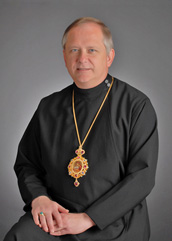 Pope Benedict XVI elected William Charles Skurla, 55, as the 8th bishop (and 5th Archeparch) of the Pittsburgh Ruthenian Church, until now, the Eparch of Passaic (NJ).
Pope Benedict XVI elected William Charles Skurla, 55, as the 8th bishop (and 5th Archeparch) of the Pittsburgh Ruthenian Church, until now, the Eparch of Passaic (NJ).
Church has role proposing a more excellent way: happiness & freedom
For her part, the Church in the United States is
called, in season and out of season, to proclaim a Gospel which not only
proposes unchanging moral truths but proposes them precisely as the key to
human happiness and social prospering (cf. Gaudium et Spes, 10). To the extent
that some current cultural trends contain elements that would curtail the
proclamation of these truths, whether constricting it within the limits of a
merely scientific rationality, or suppressing it in the name of political power
or majority rule, they represent a threat not just to Christian faith, but also
to humanity itself and to the deepest truth about our being and ultimate
vocation, our relationship to God. When a culture attempts to suppress the
dimension of ultimate mystery, and to close the doors to transcendent truth, it
inevitably becomes impoverished and falls prey, as the late Pope John Paul II
so clearly saw, to reductionist and totalitarian readings of the human person
and the nature of society.
Continue reading Church has role proposing a more excellent way: happiness & freedom
